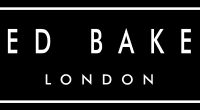
The taxman is next month tightening its grip on investors by reducing the amount of capital gains and dividends you can make before paying tax.
The good news is that it is possible to beat the squeeze and avoid a large bill on your profits, — but only if you act fast.
Savers have less than three weeks to take advantage of little-known Bed and Isa rules that shield their hard-earned funds from the tax raid.

Get going: Savers have less than three weeks to take advantage of little-known Bed and Isa rules
Investors face a tax raid
From April 6, the capital gains tax allowance will be slashed from £6,000 to just £3,000 — less than a quarter of the £12,300 allowance investors enjoyed in 2022.
Reductions to the dividend tax allowance will be equally savage. From April, the amount investors can earn in dividends will drop to just £500, down from £1,000 this year.
The new allowance will be a tenth of the £5,000 that was available at its height during the 2017-2018 tax year.
The swingeing reductions mean more ordinary investors will start paying tax on their investments for the first time, with the Government estimating that 260,000 new individuals and trusts could be stung by capital gains tax in the coming tax year.
But even more investors will be stung by reductions to the dividend allowance, says Laura Suter, director of personal finance at investment platform AJ Bell.
An estimated 1.8 million more people will be caught in the dividend tax net as a result of the cuts to the tax-free allowance since last April, according to figures released by HM Revenue & Customs under a Freedom of Information request made by AJ Bell.
Suter says: ‘The FTSE 100 index of Britain’s largest listed stocks is forecast to yield 4.2 per cent this year, meaning an investor only needs £12,000 in their pot before they hit the tax-free dividend limit of £500 from April.
‘But that’s based on the average return, some FTSE 100 companies are forecast to deliver a dividend yield of 10 per cent or more — meaning you only need to have £5,000 invested in them before you exhaust your tax-free allowance next tax year.’
How much could the tax raid cost you?
Calculations from investment platform Interactive Investor show that from April 6 a basic rate taxpayer who makes a £5,000 gain on shares will pay £200 in capital gains tax, while higher rate taxpayers will have to stump up £400.
Meanwhile, the tax bill on £1,000 worth of dividends will be £43.75 a year for basic rate taxpayers or £168.75 if you pay the higher rate. Previously no tax would have been payable in these cases.
Myron Jobson, of Interactive Investor, says: ‘The significant cuts to both capital gains tax and dividend tax allowances mean that those with more modest portfolios held outside a tax wrapper — like an Isa or a pension — face a rising tax burden as their investments grow.’
Capital gains tax kicks in once an investor decides to sell an investment and locks in gains that exceed the tax-free threshold.
So someone who invested modest amounts and who has seen their investments grow significantly over the years, could face a substantial tax bill once they sell their stake, Mr Jobson warns.
Those who start becoming liable for capital gains and dividend tax will also face the headache of completing a tax return to declare their returns for the first time.
How a Bed and Isa can beat the tax raid
There are a number of strategies investors can use to legally avoid paying tax on their investments, but one of the most straightforward is known as ‘Bed and Isa’.
The trick’s bemusing name refers to the ‘Bed and Breakfast’ strategy which previously enabled investors to sell gains up to the capital gains tax allowance one day and buy them back the next, but was outlawed in 1998.
Completing a Bed and Isa involves selling investments in a general investment or trading account, such as shares, funds or investment trusts, that are not sheltered from tax, and immediately buying them back within a stocks and shares Isa. From then on, the investments will be fully sheltered from tax.
Alice Haine, personal finance analyst at Best Invest, says: ‘Many people across the UK are simply unaware of the tax benefits that come from protecting investments from tax by holding them in a tax wrapper, such as a stocks & shares Isa.
‘Some DIY investors hold assets in a trading account or even have share certificates sitting in a drawer at home, unaware that transferring them into an Isa will make their investments more tax-efficient.’

What’s involved? Completing a Bed and Isa involves selling investments in a general investment or trading account
Act soon: What you need to know about a Bed and Isa
It normally only takes a few days to complete a Bed and Isa, but you will need to have an Isa and a general investment or trading account on the same platform.
That means you’ll need to allow extra time to open an Isa if you don’t have one already, or transfer a trading account on to the same platform as an existing Isa.
Haines adds: ‘If you hold shares in certificated form, you will need to transfer them to a general investment account with your chosen Isa provider so they can then sell them. This may also take a few days.’
Moving money into a wrapper where it will be sheltered from tax will be a sensible move for most, but there are still potential pitfalls to swerve.
Suter says, first you need to check you have enough Isa allowance remaining — that’s £20,000 overall for Isas or £4,000 if you’re using a Lifetime Isa to save for a first home or retirement.
‘If you don’t have enough allowance remaining, you will need to spread the transaction across two tax years,’ she says.
‘You’ll also want to factor in how much capital gains tax allowance you have remaining this year.
‘When you sell the investment it could trigger a gain and if this exceeds your tax-free allowance, you’ll be liable to pay tax. Most investors who are trying to avoid a tax bill altogether, will work out how much of the investment they can Bed and Isa in order to realise gains up to their capital gains tax limit for the year.’
There will be a charge for completing a Bed and Isa — but rather than paying separate fees for the sale and the purchase, you should only pay a single dealing charge.
You should also check your platform’s deadline for Bed and Isa applications. These vary but are usually a week before the end of the tax year on April 5.










